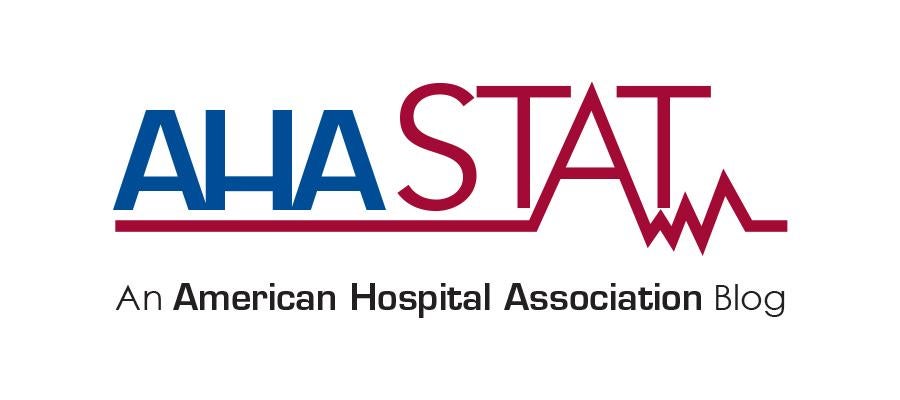The echo chamber propagates the same old same old for hospital mergers: we can do better.

Hospital mergers are worth discussing, but too often the criticism is far from rigorous or even searching – it’s more like an echo chamber where critics cite those with whom they agree and ignore inconvenient facts that show how the hospital field continues to rise to every challenge in serving the communities that depend on them for care.
This discussion comes at a time when the health care sector is undergoing a significant transformation in response to the changing needs of communities. Patients are asking for more convenient care that is affordable for them and meets the highest standards of quality. Hospitals and health systems are responding to these needs, while at the same time, facing economic headwinds such as increased insurance market consolidation and acquisition of physician practices by insurers and other new market entrants.[i], [ii], [iii]
The unfortunate echo-chamber is a result of like-minded researchers and pundits using the same data sources in ways that only reinforce their previously held beliefs. Extensive research has been done on political echo chambers and their role in affecting public opinion.[iv], [v] What happens is a handful of findings from academic studies are rarely closely scrutinized and frequently misinterpreted or taken out of context, and then repeated and assigned greater meaning by others. These mischaracterizations are then reiterated in other publications. It’s like a game of “telephone” where the original message is distorted as it’s repeated over and over again.
In this case, peer-reviewed and academic literature contributes to this echo chamber. Many of the studies on consolidation cite from a core set of articles. For example, “The Price Ain't Right? Hospital Prices and Health Spending on the Privately Insured” is consistently cited as a definitive argument against consolidation since it was originally published in December 2015 (Cooper et al. 2015). This work has serious limitations and flaws; authors used old and limited data, relied on a crude geographic measure of hospital markets, and found no causal link between hospital consolidation and prices.[vi], [vii] Despite these issues, this article has since been cited 229 times.
It would be reasonable to continually cite research if subsequent authors addressed its limitations, attempted to replicate the results with a broader, more representative data set, or discussed the original results with more nuance and context. Instead, most authors cite it as conclusive proof that consolidation leads to higher prices. Thus, the narrative that mergers cause higher prices becomes a snowball rolling downhill, picking up anything and everything as it rolls, regardless of the quality or definitiveness of what it picks up along the way.
Think tanks also contribute to the echo chamber through things like special reports. Often, these reports cherry-picked findings and, uncouple them from the original authors’ discussion of data sources, methods and limitations. As result, the reports often mischaracterize or oversimplify the literature. For example, the Center for American Progress published a report that consolidation “leads to higher prices but not better care.”[viii] In reality, hospital prices have grown by less than 2% annually on average since 2010.[ix] Moreover, evidence from the field shows hospital mergers are associated with improved care.[x], [xi]
Media pundits further fuel the cycle. For example, a CNBC pundit spun New England Journal of Medicine findings to conclude, “Hospital monopolies are making us poorer and sicker.”[xii] In fact, the Journal found consolidation had no effect on readmissions and mortality measures.[xiii]
This echo chamber does a disservice to everyone. A quick Google search of hospital consolidation would leave a layperson with a misinformed view of the underlying research. It can sway our discussion of what drives hospital consolidation, and mislead policymakers about the realities of managing high-quality hospital systems responsive to the needs of real communities and a rapidly evolving health care landscape. Most importantly, it’s a disservice to our communities and the millions of consumers who rely on hospitals and health systems for their care. They deserve more from this cabal of researchers and pundits in search of headlines not solutions.
Melinda Hatton is AHA general counsel; Aaron Wesolowski is AHA vice president for policy research, analytics and strategy; and Benjamin Finder is AHA senior director for health analytics and policy.
[i] https://www.ama-assn.org/delivering-care/patient-support-advocacy/competition-health-insurance-research
[ii] https://www.fiercehealthcare.com/payer/unitedhealth-optumhealth-summit-partners-sound-physician-medical-holdings-acquisition
[iii] https://www.wsj.com/articles/unitedhealth-to-buy-catamaran-for-12-8-billion-in-cash-1427709601
[viii] https://www.americanprogress.org/issues/healthcare/reports/2018/12/05/461780/provider-consolidation-drives-health-care-costs/
[ix] AHA analysis of Bureau of Labor Statistics data, Producer Price Index, 2010 - 2019, for Hospitals.

